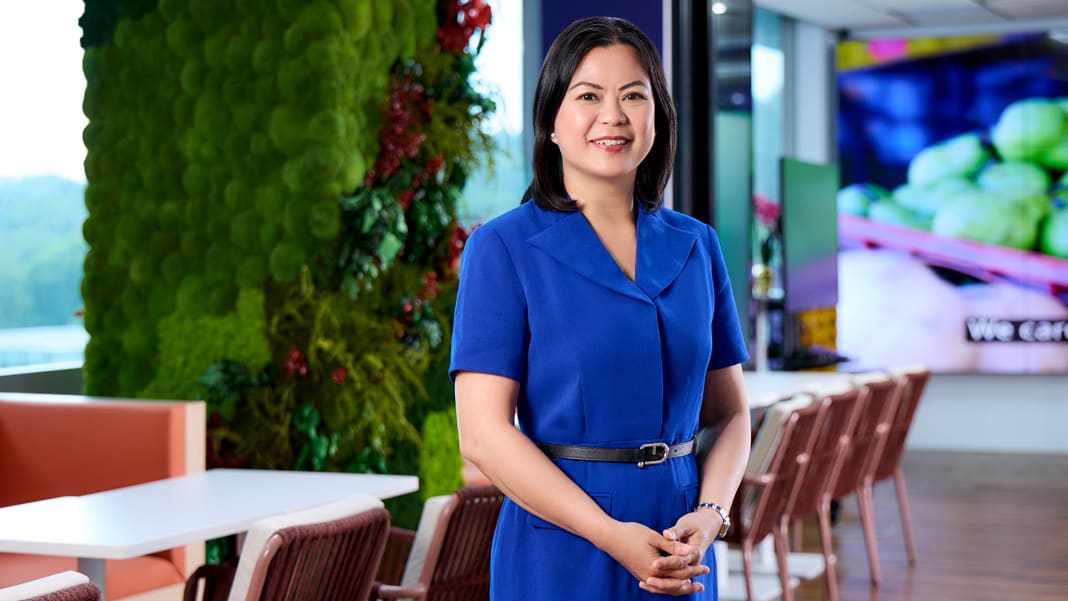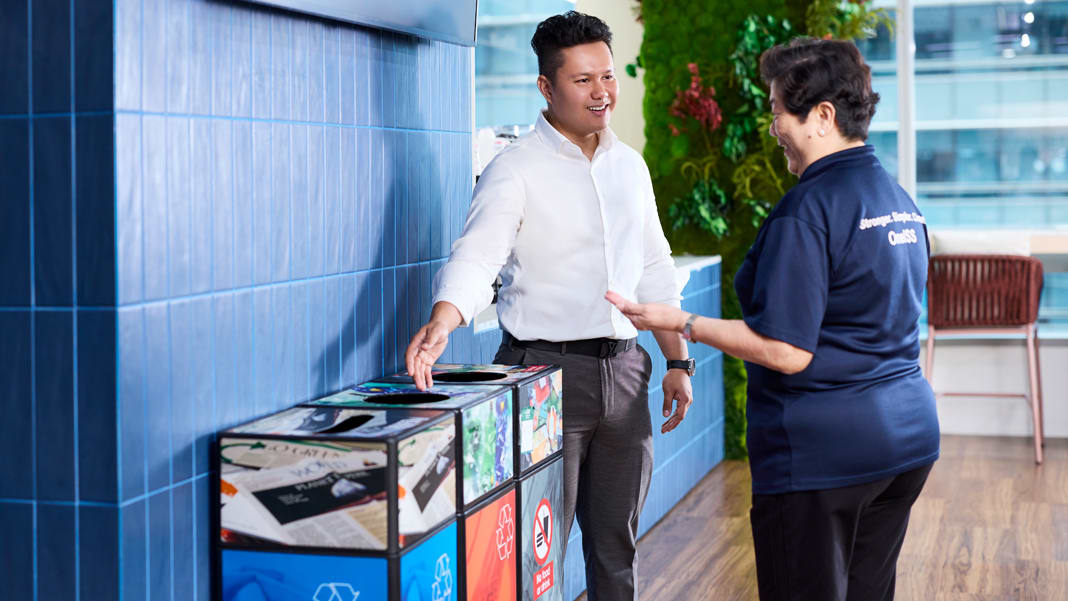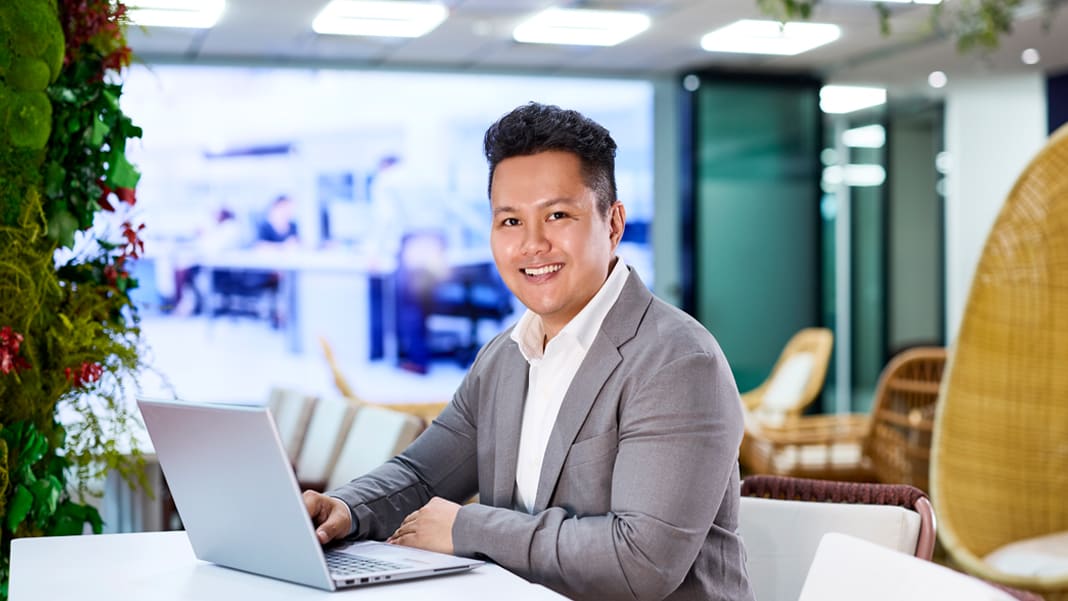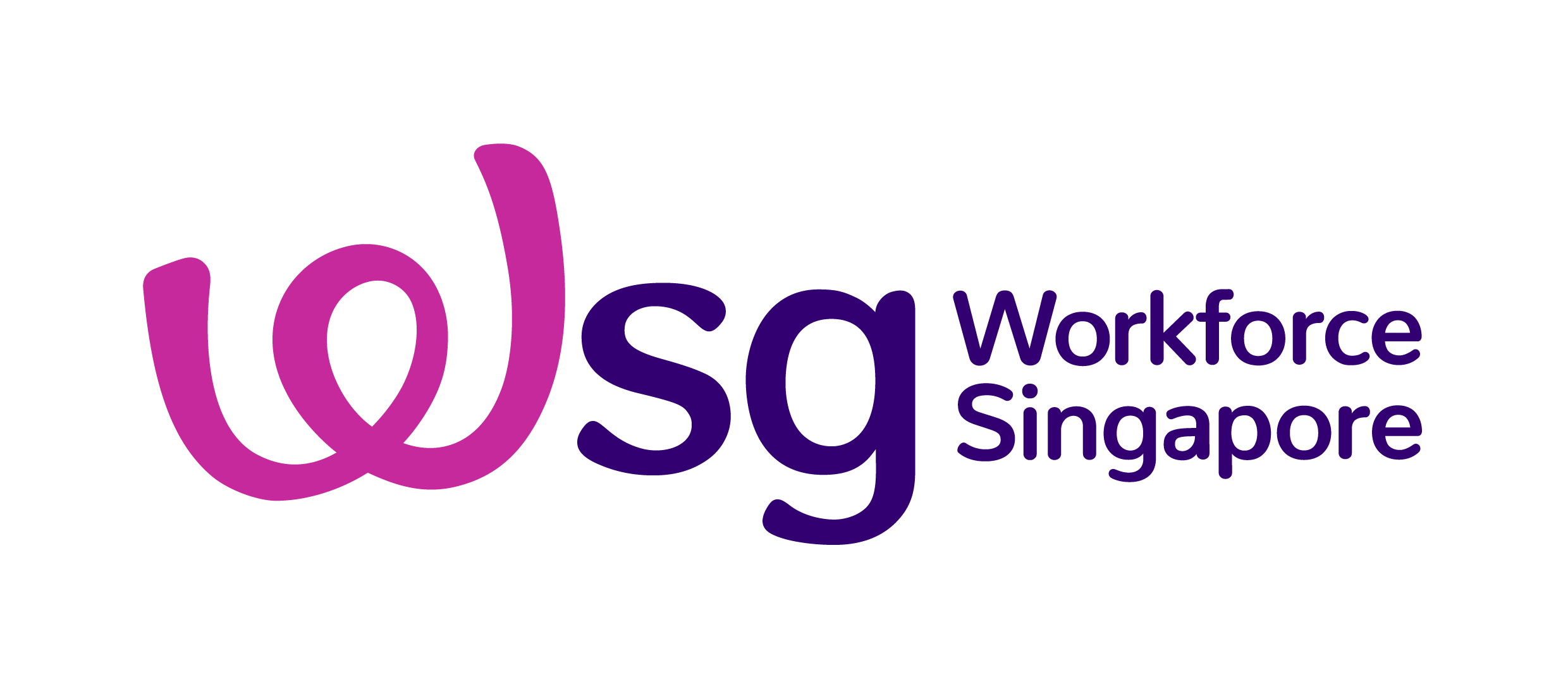ISS, the largest facility services organisation in Singapore, employs more than 8,000 people locally and operates in over 30 countries. Founded in Denmark in 1901 as a provider of security personnel, it has since evolved into a leading integrated facility services company – delivering cleaning, technical, food and workplace solutions globally.
As part of its growth strategy, ISS Facility Services, Singapore (ISS Singapore), is strengthening the career health of its workforce by enhancing sustainability competencies across key account management roles. This includes skills in carbon accounting, environment, social and governance (ESG) reporting, and green procurement. According to its CEO, Ms Gina Toh, roles have been redesigned to align with the company’s sustainability goals and to offer more targeted solutions – opening up further business opportunities.
“Sustainability is central to our growth strategy, and we recognised early on that our ability to deliver value to clients would depend on the sustainability competencies of our workforce,” said Ms Toh, who has been with the company for more than 20 years. “We saw the need to future-proof our capabilities and respond with tailored solutions.”
To support this shift, the company turned to Workforce Singapore’s (WSG) Career Conversion Programme for Sustainability Professionals (CCP-S). Ms Toh, who has led ISS Singapore since 2019, described the programme as a “perfect fit” for the company’s objectives. “It gave us a practical pathway to embed sustainability skills within our frontline leadership roles,” she explained. “This not only enhances our quality of service but also differentiates us in a competitive market.”

RESKILLING FOR RESULTS
So far, 15 employees at ISS Singapore have completed CCP-S, with more expected to enrol. These employees now help develop facility management solutions focused on energy efficiency, waste reduction and other sustainability goals. They also evaluate whether proposed initiatives are viable and aligned with client expectations.
“The most immediate benefit of the CCP-S has been our ability to embed sustainability into our service delivery model,” said Ms Toh. She added that employees who have gone through the programme are now equipped to support clients in achieving their environmental goals.


One of them is key account manager Fikril Hakim Azril, who leads a team of 60 and oversees facilities operations across several accounts. Since joining ISS Singapore in 2017, the 33-year-old has steadily taken on more responsibility. Last year, at the recommendation of his line manager, he completed the three-month CCP-S and now leads client discussions on sustainability initiatives.
“CCP-S deepened my understanding of ISS’ sustainability practices and capabilities, and why certain initiatives are being done,” said Mr Fikril. “I now understand our clients’ needs better and can even anticipate them.” This allows him to respond quickly and independently. “From there, we can collaborate with our suppliers and vendors to bring these initiatives to life,” he added.

The site visits that Mr Fikril conducts have also become a key part of the company’s internal sustainability efforts. “Because I see what is happening on the ground, I can make observations and offer suggestions to my clients,” he said.
For instance, he noticed a high volume of plastic waste generated from cleaning detergent bottles. This led to cleaners weighing and recording the different types of waste – such as plastics, paper and e-waste – and sorting them into designated bins under a new recycling initiative.
Such input has enabled closer collaboration with the internal sustainability team. One idea being explored involves upcycling the plastic waste into road pavement materials. Mr Fikril added that such efforts also encourage clients to reflect on and improve their own operational practices.
STRONGER SKILLS, STRONGER COMPANY
How ISS Facility Services, Singapore, has benefited from the Career Conversion Programme for Sustainability Professionals.
• Built sustainability competencies within frontline leadership roles
• Reskilled staff to develop and deliver sustainability-focused facility solutions
• Enabled teams to lead sustainability conversations with clients with greater confidence and speed
• Embedded sustainability into the company’s service delivery model
• Strengthened market position through differentiated capabilities
• Equipped employees to support both business priorities and environmental goals
FUTURE-PROOFING THE FRONTLINE
The decision to enrol employees in the CCP-S was driven by increasing client expectations and a broader industry shift towards more sustainable operations, said Ms Toh.
Employees such as Mr Fikril play a key role in this transformation. With their newly acquired knowledge, they are able to apply sustainability principles – such as waste reduction and green procurement – to improve day-to-day operations.
Mr Fikril, who holds a degree in project and facility management, also credited his manager for encouraging him to join the programme. “I’m better equipped with deeper insights and can now propose data-driven solutions that align with the evolving sustainability landscape,” he said. He added that gaining new competencies has strengthened his professional portfolio and improved his ability to serve clients.

PROGRESS WITH PURPOSE
Programmes like the CCP-S, when conducted alongside ISS Singapore’s structured career pathways, have helped retain talents and improve their career health, Ms Toh said. The company holds formalised career conversations annually, with mid-year check-ins during performance reviews to engage in development discussions. Employees are encouraged to indicate their interest in reskilling or exploring new roles, and are subsequently supported through classroom-based instruction, e-learning and on-the-job training.
“Rather than relying solely on external hires, we prioritise upskilling existing employees so they can grow with us,” she explained. This approach, she noted, helps build institutional knowledge and enhance the talent pipeline.
Mr Fikril acknowledged that while training can be time-consuming, the long-term benefits are worthwhile. “It is always a positive thing for you to learn new skills,” he said.
He added that upskilling and reskilling not only deepen one’s understanding of the industry but also helps managers identify employees who are ready for advancement. “It benefits you in terms of knowing what’s going on in the industry,” he said. “If your managers or peers notice, they might see you as someone who could potentially take on a bigger role in the future.”
SEE HOW CAREER HEALTH DRIVES BUSINESS RESULTS
Whether it is reskilling for new demands or redesigning roles to stay competitive, these companies are investing in their people and seeing real returns. Scroll down to explore how others are integrating career health into their strategy – or turn to the Career Health Playbook for Business Growth for tools, tips and strategies to future-proof your workforce.


















